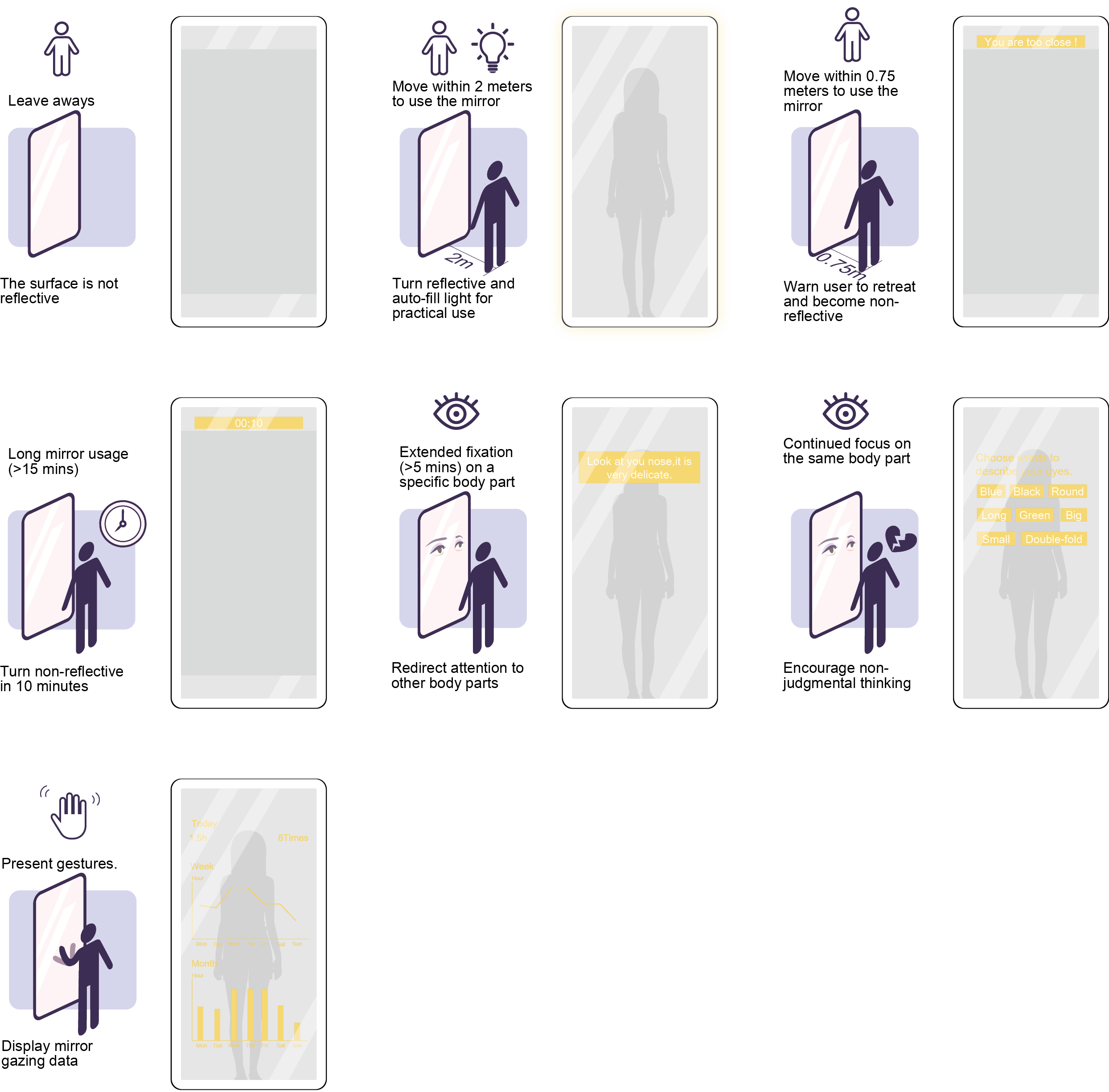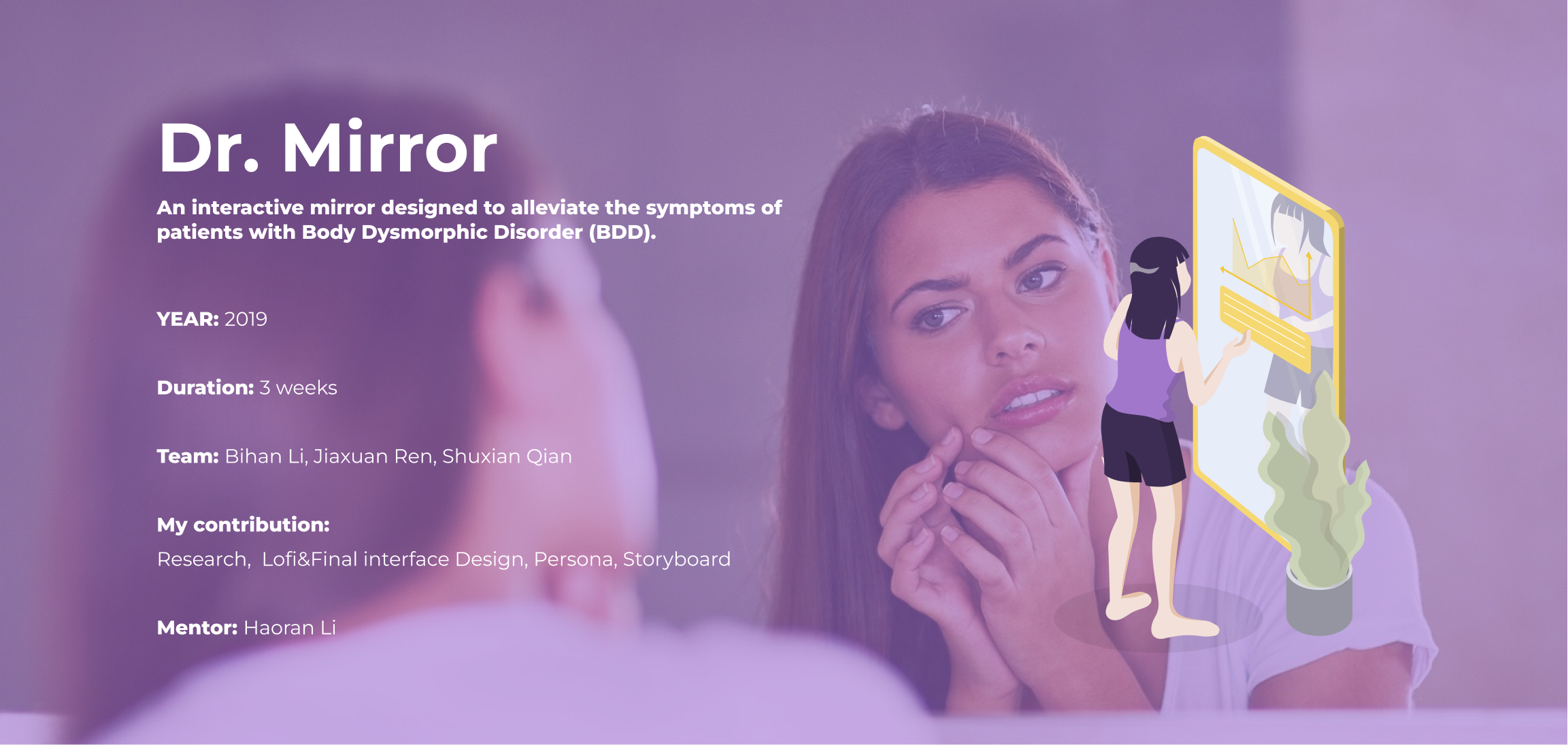
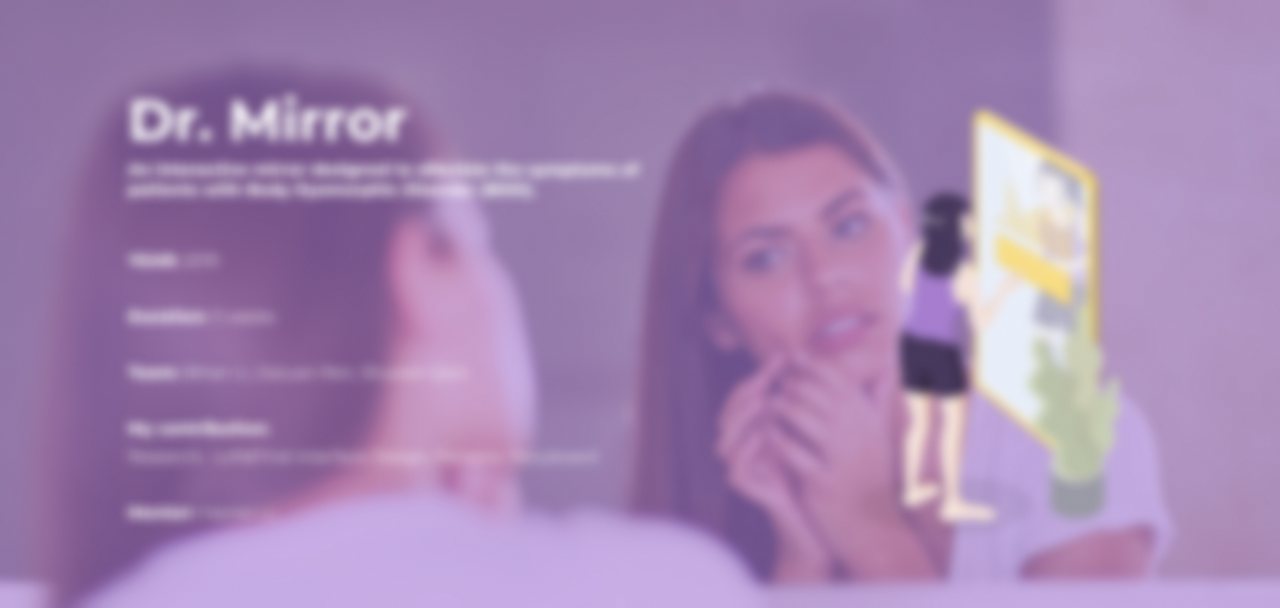


Body Dysmorphic Disorder (BDD) is a mental health condition characterized by a persistent and excessive preoccupation with one's appearance. Individuals with BDD have an intense and often irrational belief that there is a defect or flaw in their physical appearance.
Individuals with BDD often engage in compulsive mirror gazing, worsening their condition and wasting valuable time. Dr. Mirror has the potential to prevent these harmful behaviors and contribute to the improvement of the illness.


Documentaries and websites have provided us with a foundational understanding of Body Dysmorphic Disorder (BDD).
1. BDD, a prevalent disorder, remains largely overlooked.
2. BDD patients amplify their perceived physical flaws.
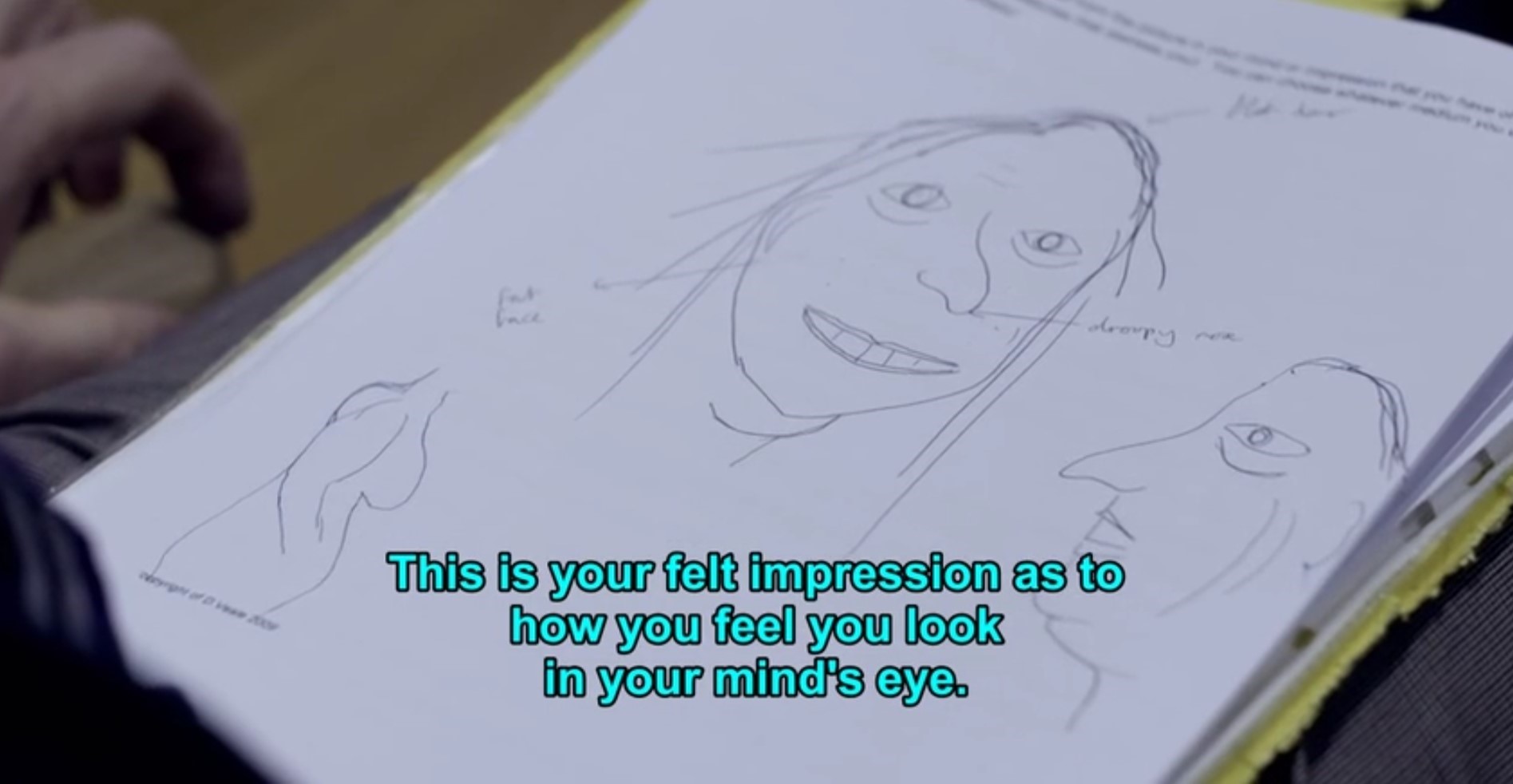
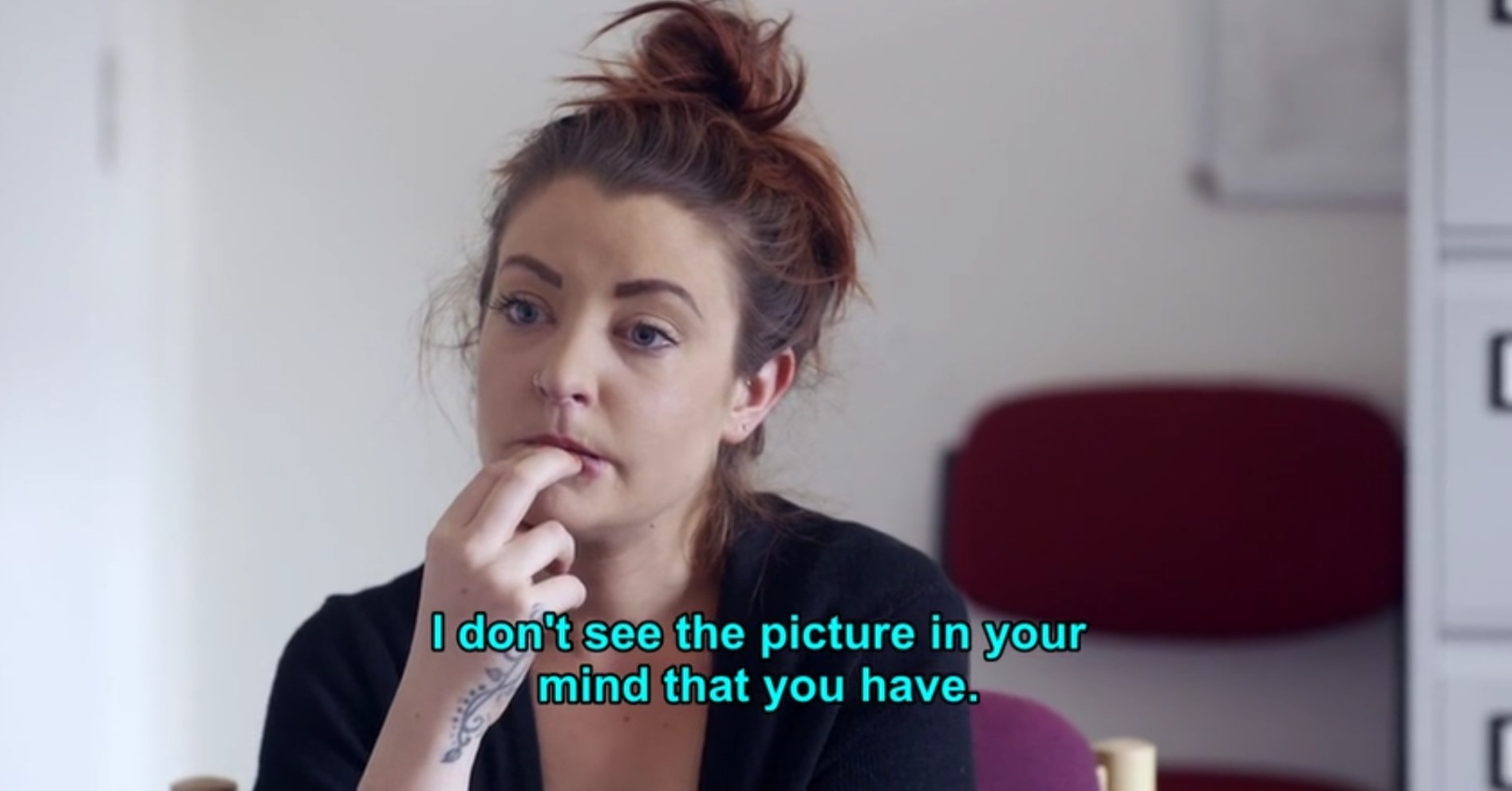
3. Mirrors play a very important role in BDD patients' life.

Our literature research focused on understanding the underlying causes and scientific treatments for Body Dysmorphic Disorder (BDD).
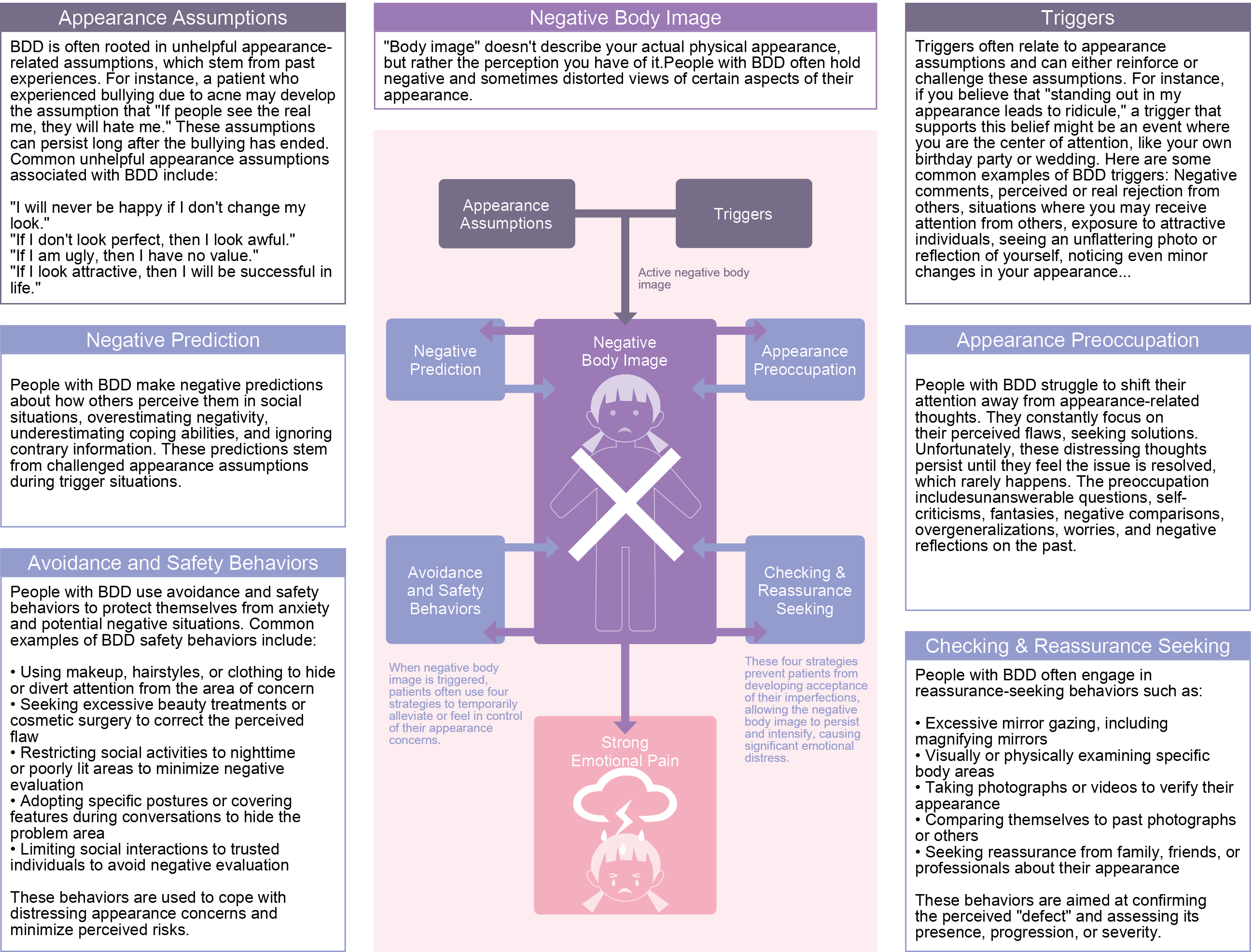
After discovering the significant association between BDD patients and mirrors during the initial research, we then investigate the role of mirrors in the pathology of BDD.

The therapy options for patients with Body Dysmorphic Disorder are still being explored, but three treatments have been proven effective: cognitive-behavioral therapy, supportive psychotherapy, and antidepressant medications.
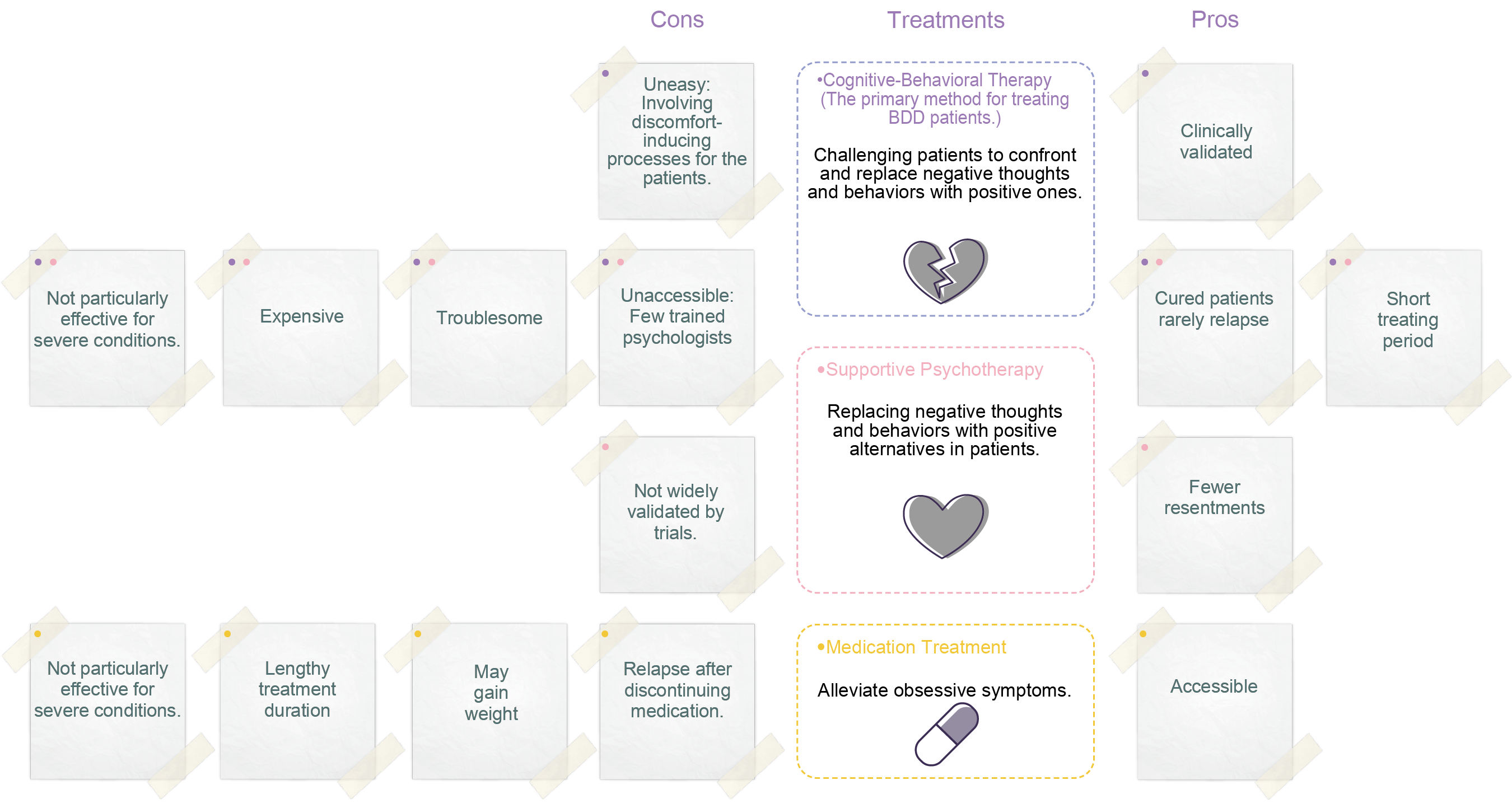
Cognitive-Behavioral Therapy includes "Mirror Exposure Therapy" where the mirror is used as a therapeutic tool. This therapy typically consists of three procedures.
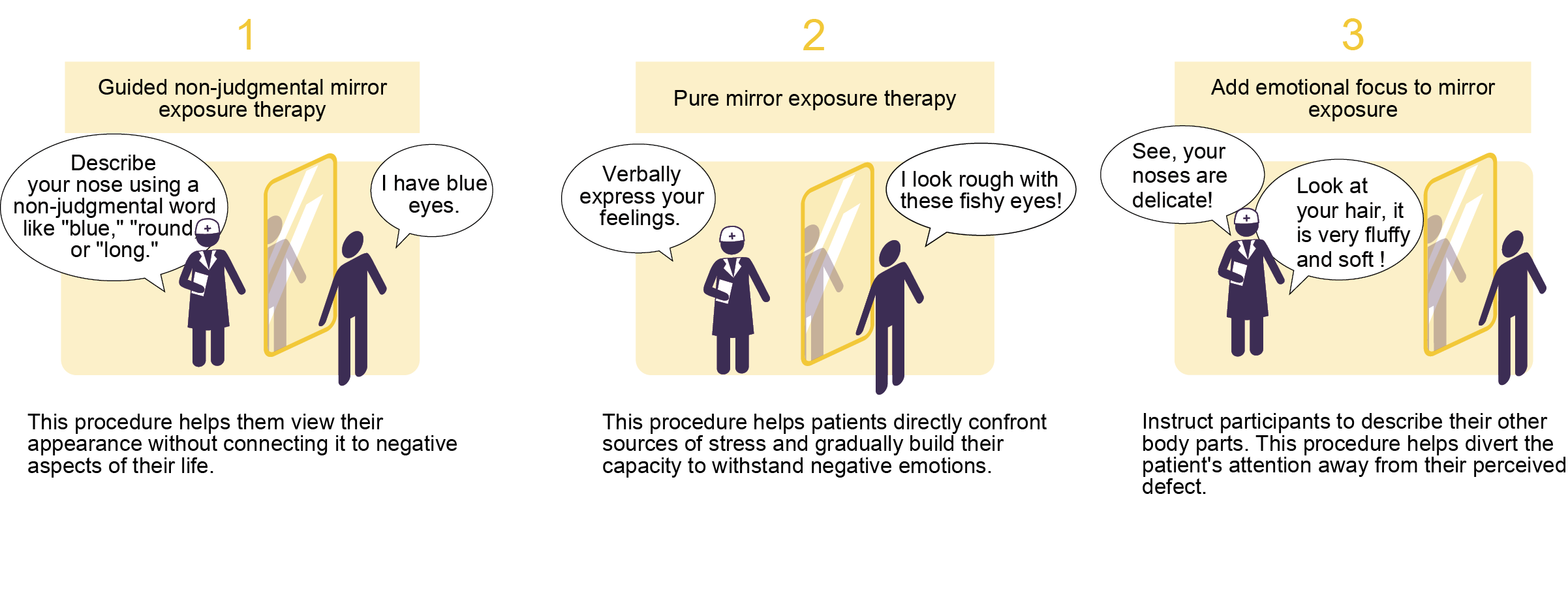
The research findings sparked our keen interest in mirrors, leading us to choose them as a focal point for developing our design.
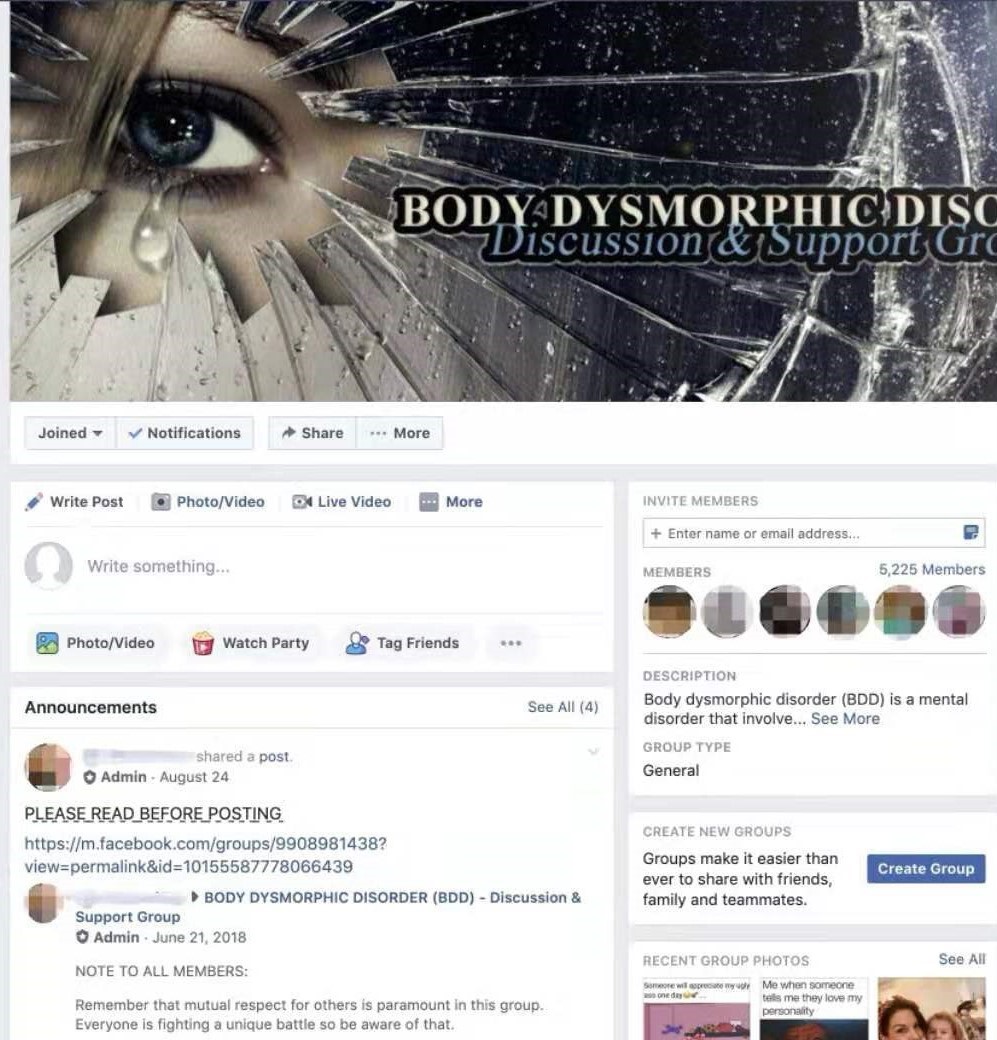
To gain a deeper insight into the difficulties experienced by BDD patients when using mirrors, we gathered feedback and evaluations specifically focused on mirrors from the BDD Facebook group.
Insight 1
People with BDD often have a compulsion to constantly check themselves in the mirror, unable to resist the urge.
Insight 2
Individuals with BDD would unconsciously stare at the mirror for a long time
Insight 3
Mirrors and lighting affect moods differently.
We contacted two professional psychologists specializing in BDD research through the social media platform "Zhihu," which serves as a gathering place for domain experts to share their insights. The valuable information we obtained from them has guided our design decisions.
Under the influence of physiological factors, individuals with body dysmorphic disorder have difficulties perceiving or processing general information about their image. They can only perceive the detail they think as a defect and always scan the detail carefully in the mirror for a long time and in extremely close physical proximity.

How to guide patients in using mirrors during clinical treatment:
When to use
How to use
Choose right mirror
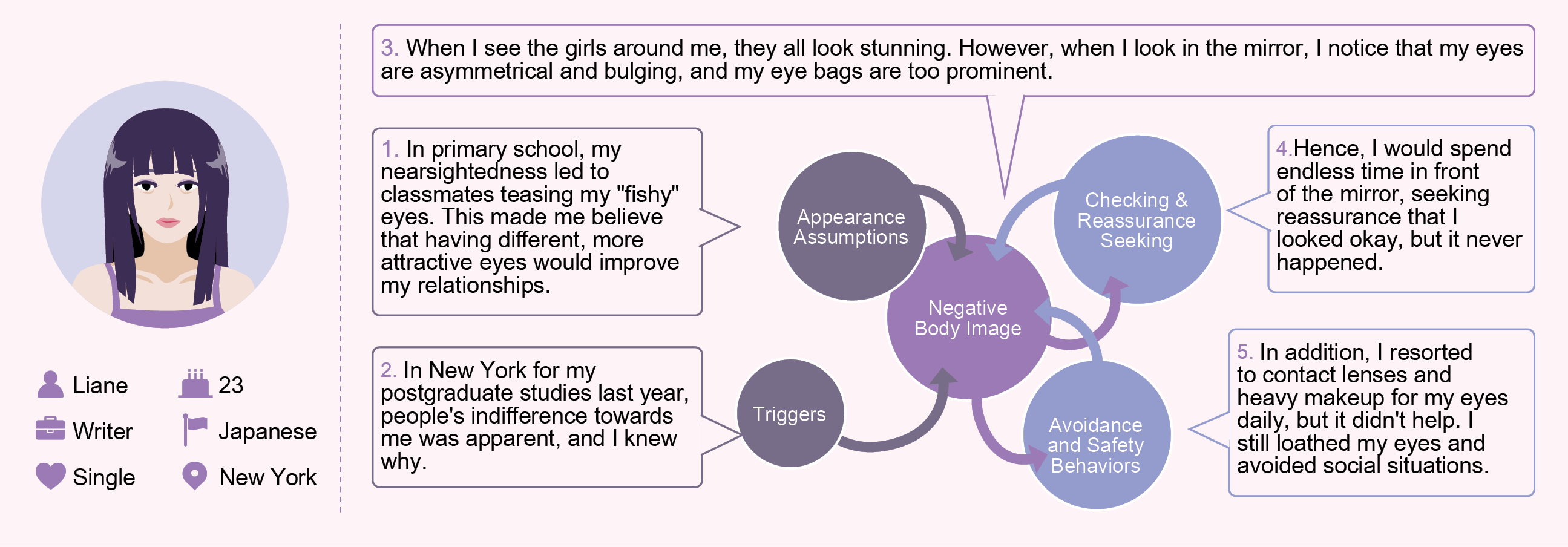

I feel awful looking closely at my eyes in the mirror.
Looking at the mirror in poor lighting always makes me feel awful.
Whenever I catch a glimpse of a mirror, I become captivated and find myself unable to look away.
I spend an hour daily on my makeup routine, or else I feel reluctant to go out.

